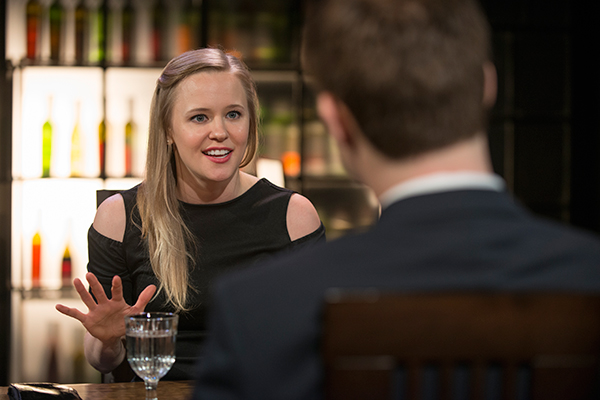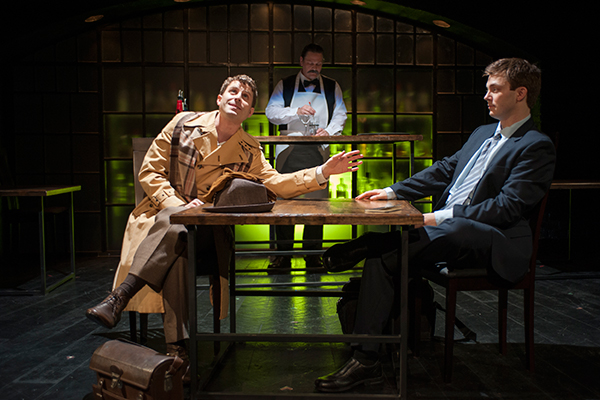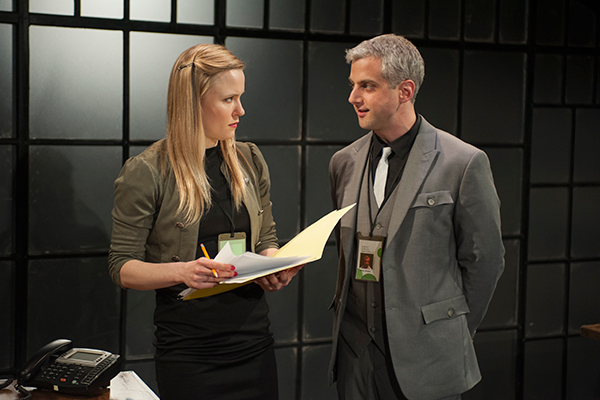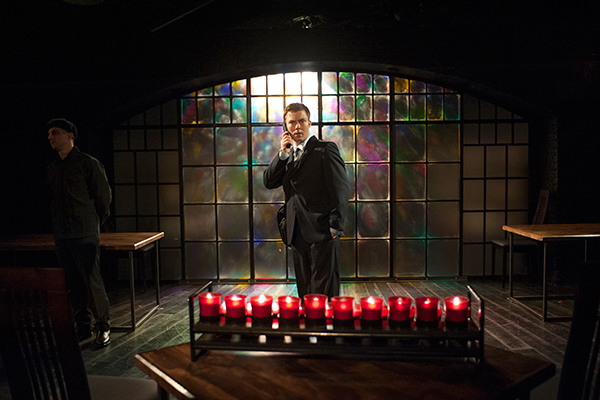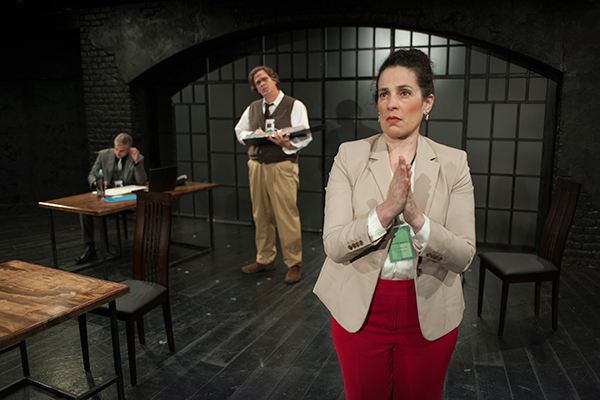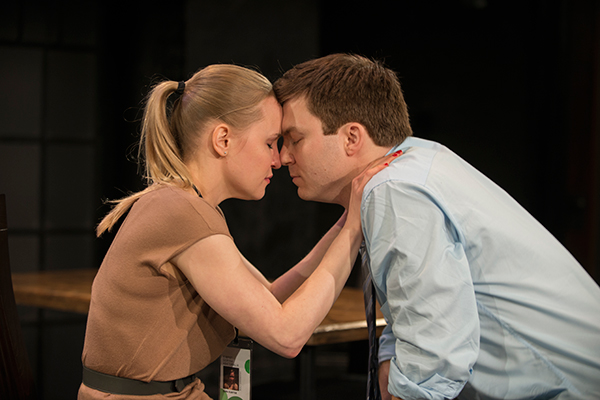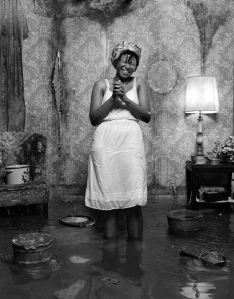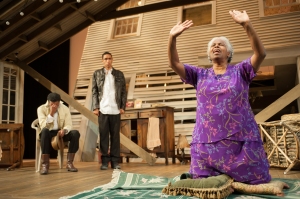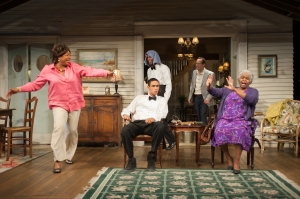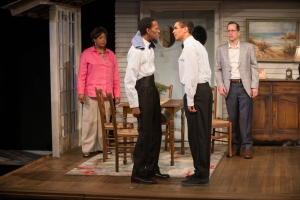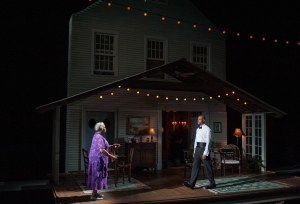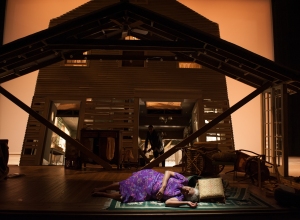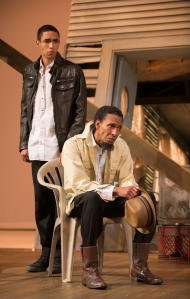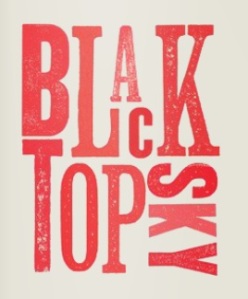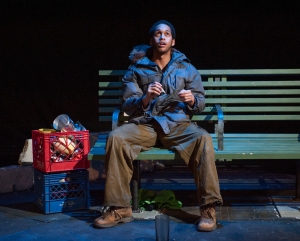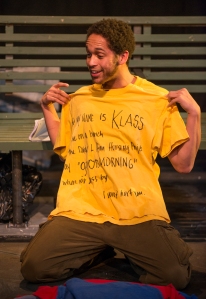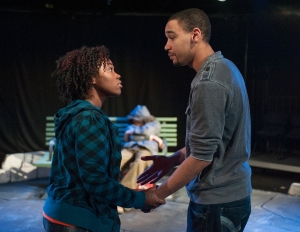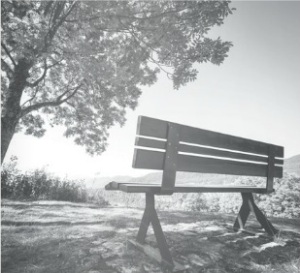The Internationalist
 WHAT: The Internationalist
WHAT: The Internationalist
WHEN: May 28 – June 16, 2013 (schedule)
WHERE: Steppenwolf Garage Theatre (1624 N. Halsted)
RUNTIME: 85 minutes, no intermission
WHO: Steppenwolf Theatre Company/Northwestern University
PRICE: $20
OUR RATING: Skip it!
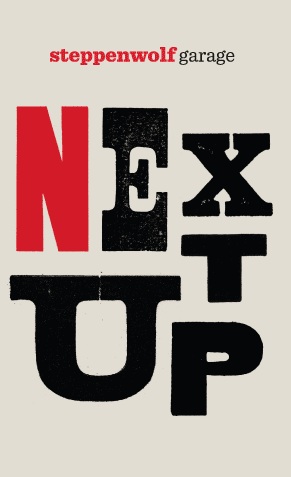 The Internationalist, written by Anne Washburn, is one of the three productions that make up Steppenwolf’s Next Up Repertory presented in collaboration with Northwestern University’s MFA programs in Direction and Design. Featuring the work of graduates of those programs, the productions are coupled with casts of professional Chicago actors. Neil LaBute’s Fat Pig and Adam Bock’s The Drunken City complete the repertory, all set up in The Garage Theatre.
The Internationalist, written by Anne Washburn, is one of the three productions that make up Steppenwolf’s Next Up Repertory presented in collaboration with Northwestern University’s MFA programs in Direction and Design. Featuring the work of graduates of those programs, the productions are coupled with casts of professional Chicago actors. Neil LaBute’s Fat Pig and Adam Bock’s The Drunken City complete the repertory, all set up in The Garage Theatre.
Set in an undisclosed Eastern European country, The Internationalist tells the story of American businessman Lowell on a business trip abroad, where he must cope with a foreign culture and language he can’t begin to understand, all the while caught up in an overwhelming office romance and an overall disconcerting office culture undergoing constant chaos.
Alicia: This show had a difficult start, and it was clear from the beginning that Northwestern MFA student and director Erin Murray couldn’t quite make sense of what is ultimately an intriguing, but very rough and flawed script. And neither could I for that matter, and while the center of the story had a few ups in its execution, the shaky beginning and end of the production found me confused and frustrated, and all I wanted to do after the show was over was forget I ever saw it. Which was not really a problem, as in the end there was nothing really memorable at all.
Perhaps the only consistently redeeming aspect of the production was Scenic Designer Stephanie Cluggish’s set, who pulled off some amazing effects and beautiful scenes and who really made this place (whatever it was) her own. And while most of Sound Designer Kevin O’Donnell’s soundscape was intriguing (with a consistent underscore of a manipulated “Relax” by Frankie Goes to Hollywood), there were some really awful choices made in some scenes where the music would suddenly change to un-subtly reflect the change in topic and mood, which instead of enhancing the transition, called it out in an extremely uncomfortable manner.
And don’t get me started on the transitions in this show. Oh, so very painful.
Adam: There is something seriously unintelligible about The Internationalist, and its not just the gibberish language created to reflect some unknown Eastern European tongue (it doesn’t sound Eastern European at all). One has to imagine that we are being plunged into the depth of jet-lag while trying to make sense of our new surroundings, but who really wants to see a play where you feel the awful oppression of a nine hour difference in a mere 90 minutes. There is a sense of mystery here, but the subplots seem unfortunately under-realized, while placing this work in any particular genre seems almost impossible.
We have glimmers of an intriguing story: a businessman on the same plane as a suspected jewel thief, the dizzying array of noir characters (some potential assassins, others criminals and some just completely narcissistic) lead one to believe we are about to see something unique and special. But the jewel heist is unexplored, the assassins brushed under the rug and the potential criminal activities never completely explained, meaning I felt extremely lost in translation in an unfulfilling, dragging way.
Perhaps the star of the show was John Gray (James, Waiter and (potentially) Partisan Bartender), whose ability to flawlessly move between a variety of characters (self-conscious, confident, brazed and psychopathic) makes him a pleasure to watch. So make sure you look out for him in upcoming productions around Chicago: he has star talent.
Final thoughts: Overall, The Internationalist is a murky play, with little content and more cryptology surrounding it than the old KGB building. But, just like you wouldn’t want to hang out in Lubyanka Square, so too is this production one to be avoided.
